News
Are dark kitchens here to stay?
Thursday, August 19th, 2021Brought to you by Flying Fish
With a number of dark kitchens opening up across the country, including the newly launched Flying Dish, a dark kitchen concept by the much-loved local beer brand Flying Fish, we decided to take a closer look at whether the dark kitchen concept is here to stay.
What is a dark kitchen?
According to reports, the first dark kitchen opened in 2016 in London and the trend has made its way to South African shores with multiple dark kitchens launching across the country.
In an interview with Eat Out, Thomas Hughes, chef and owner of Mexican Food Cartel, Tenders Chicken Burgers and Diggity Dogs, provides insight into what a dark kitchen in.
“A dark kitchen is ostensibly a restaurant without a shopfront. Or without a dining area for regular walk-in customers. A dark kitchen operates at much lower costs than a traditional restaurant. You are also able to run more than one (dark kitchen) brand out of a kitchen using the same cost base, which is unique to this model.”
A new dark kitchen concept
In an unexpected and inventive approach to responsible drinking, Flying Fish has launched its first dark kitchen.
Zachary Kingston, Flying Fish Marketing Manager, Africa Zone, highlights what inspired the launch of Flying Dish.
“Ultimately, the decision to create the Flying Dish came from a desire to help drive the responsible consumption of alcohol, through encouraging consumers to eat before they drink.”
Flying Dish’s menu caters to the wider South African palate by offering kota, vegan burgers, chicken burgers and more. Essentially, the dark kitchen caters to everyone as it offers a wide range of menu items.
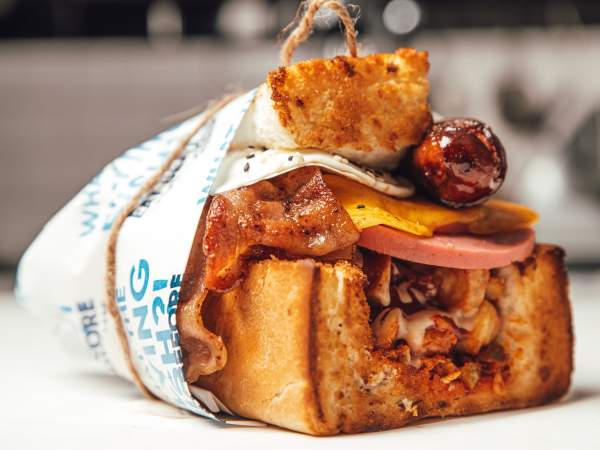
Flying Dish, Kota (Flying Fish Dark Kitchen)
Kingston emphasises that the overall aim of the dark kitchen extends beyond a tasteful menu and forms part of a bigger narrative surrounding responsible drinking.
“We launched with a dark kitchen because the #eatwithit campaign is rooted in an important message – eat before you drink, that is, line your stomach before reaching for a cold one. If we can get the food to you before you go out, we are living the narrative. We also wanted to ensure our consumers could have a constant experience, regardless of the lockdown level we find ourselves in. The nature of the Flying Dish being a dark/ghost kitchen reduces the possibility of spreading COVID-19 while simultaneously allowing us to access to many niches in South Africa responsibly.”
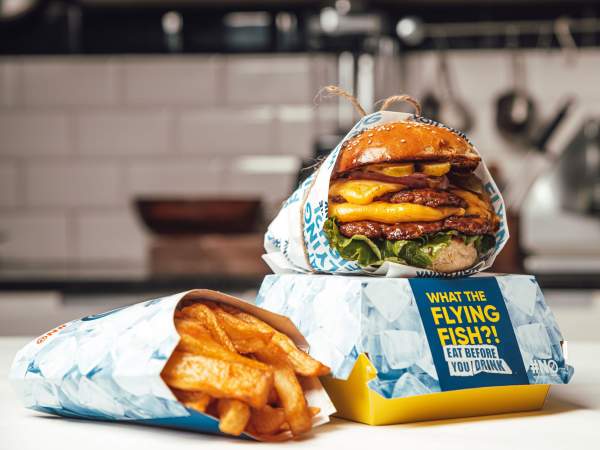
Flying Fish, Flying Dish
Why dark kitchens are the future
With the impact of the COVID pandemic, dark kitchens offer a lucrative and money-saving alternative to sit-down dining as operational costs can be drastically minimised with storage, preparation and operational systems conducted under a single roof.
Not only does the dark kitchen concept cut back on costs, but it also offers flexibility that other industry players do not have access to. For example, if a dark kitchen has launched a menu that is not performing as well they are able to adjust accordingly and can follow trends in the food space without incurring the severe costs or the limitations facing in-person dining establishments.
Speaking to Eat Out, Simele Shange explains that another pro about the concept of a dark kitchen is that it enables individuals to explore the food business sector in a more secure way.
“People have a low-cost opportunity to test the market, test their product, see if it works and grow from there. It’s the safer way to go.”
According to Hughes, dark kitchens have been growing in popularity across the globe and he strongly believes that food delivery will remain a constant.
“Our team has been researching and looking at the dark kitchen trend in Europe and the States even pre-pandemic, with the strong belief that delivery is the future and how consumers will mostly interact with restaurants going forward.”
Kingston agrees, saying: “Dark kitchens have always been popular, and now with the pandemic they are becoming even more prominent because business owners are looking for savvy ways to run a kitchen whilst cutting down costs. It’s a global trend. The pandemic has taught many that nothing is a sure thing and innovate ways of engaging with consumers is a necessity. Dark kitchens allow for a new way of sustainability that sees entrepreneurs making it through the harsh storm.”
Given the mass movement towards technology adoption in all sectors including the food and hospitality sector, the ever-changing conditions of lockdown regulations, the positives of owning and operating a dark kitchen, the concept is definitely here to stay.





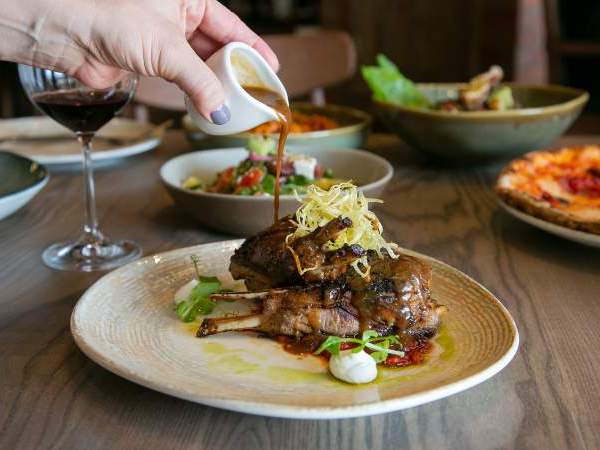
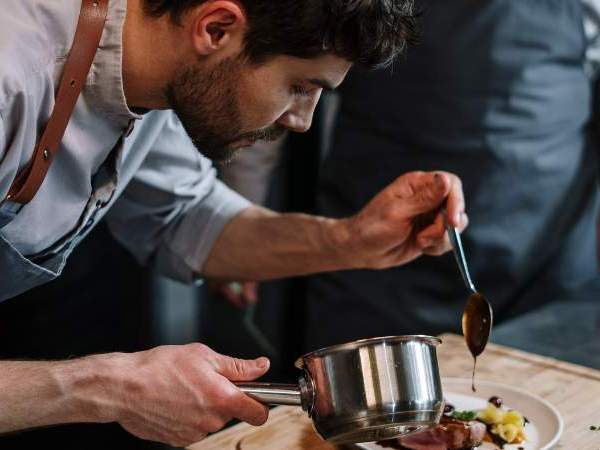
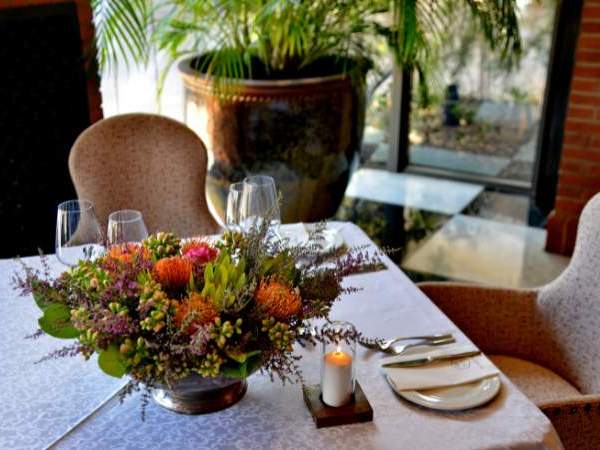






Live the concept
So it’s really just a take-away? Can’t see a future for that.